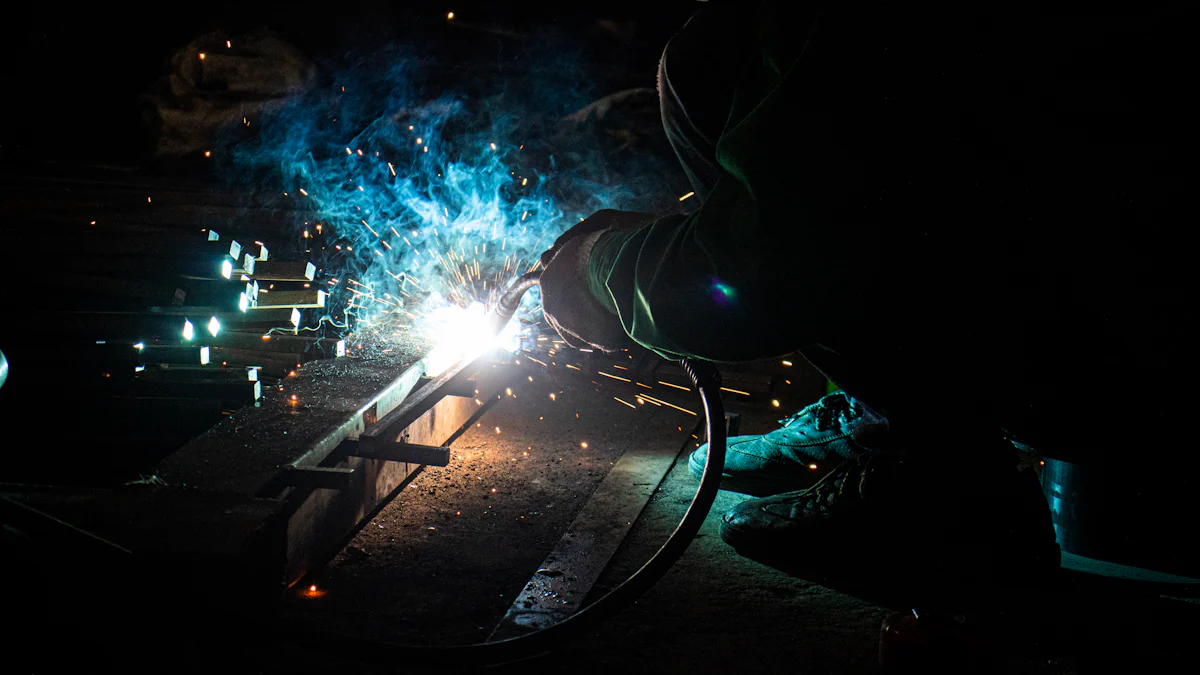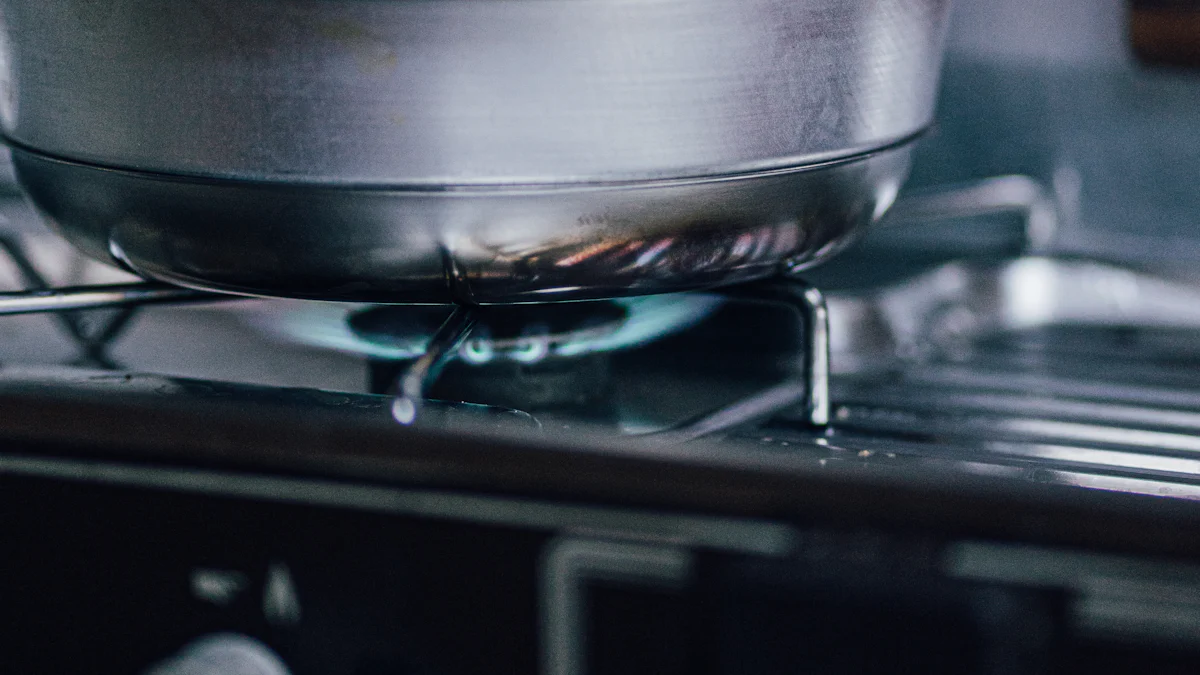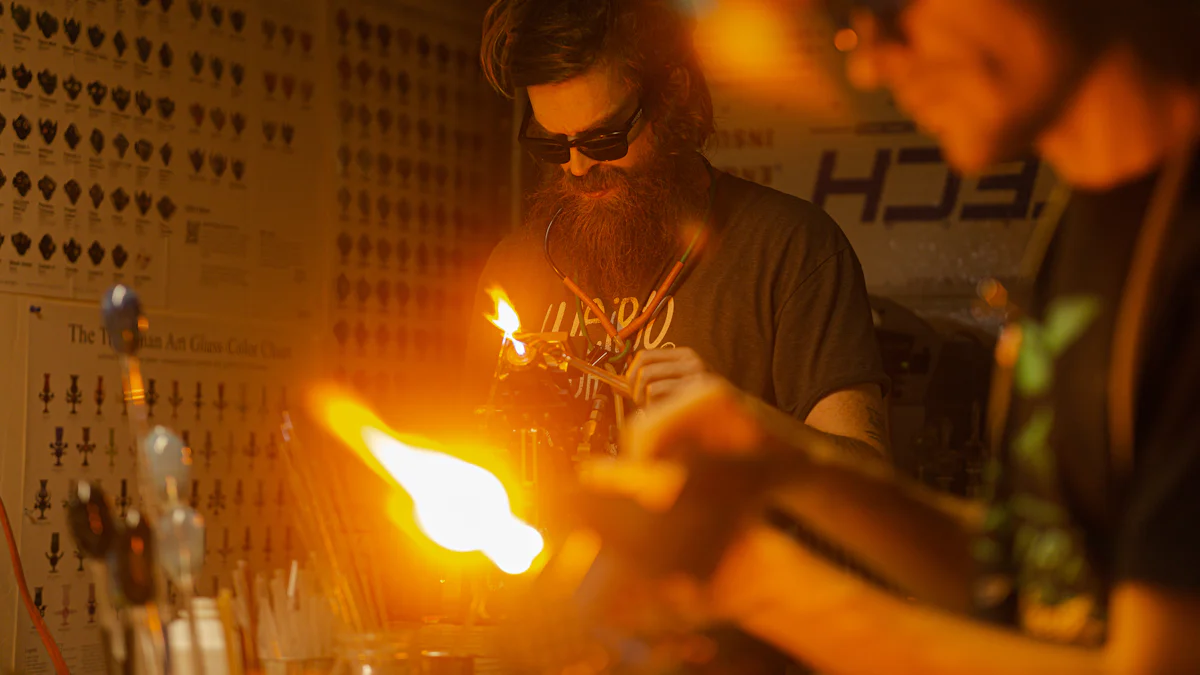
Rigid felt crucibles excel in high-temperature environments due to their advanced engineering. These crucibles endure extreme heat without compromising their structure or performance. Their thermal resistance ensures stability, even under intense conditions. Industries rely on their durability to maintain efficiency during demanding processes. The chemical stability of a rigid felt crucible prevents degradation, making it a dependable choice for applications requiring precision. This combination of properties positions them as essential tools for operations where reliability and performance are critical.
Wichtigste Erkenntnisse
- Rigid felt crucibles offer exceptional thermal resistance, ensuring they maintain structural integrity even in extreme heat.
- Their high durability and thermal shock resistance make them reliable for processes involving rapid temperature changes.
- Chemical stability prevents degradation, making these crucibles ideal for applications requiring precision and purity.
- Efficient heat transfer capabilities minimize energy waste, leading to lower operational costs in industrial processes.
- Safety is enhanced as non-reactive materials reduce contamination risks, ensuring high-quality outputs.
- The long lifespan of rigid felt crucibles translates to significant cost savings by reducing maintenance and replacement needs.
- Industries such as metallurgy, electronics, and research benefit greatly from the unique properties of rigid felt crucibles.
Unique Material Properties of Rigid Felt Crucibles

Außergewöhnliche Wärmebeständigkeit
Rigid felt crucibles demonstrate remarkable thermal resistance, making them indispensable for high-temperature applications. These crucibles endure extreme heat without losing their structural integrity. Their ability to resist deformation or failure under intense conditions ensures consistent performance in demanding environments.
Low thermal conductivity further enhances their efficiency. By minimizing heat loss, these crucibles enable precise temperature control and effective heat management. This property proves essential in processes where maintaining stable thermal conditions is critical.
High Durability and Thermal Shock Resistance
The durability of rigid felt crucibles sets them apart in industrial applications. They maintain their structural integrity even when exposed to rapid temperature fluctuations. This resilience ensures reliable performance during processes that involve sudden heating or cooling cycles.
Their robust design allows them to withstand harsh operating conditions over extended periods. Industries benefit from their long-lasting performance, reducing the need for frequent replacements and ensuring uninterrupted operations.
Chemical Stability and Low Specific Heat
Rigid felt crucibles exhibit exceptional chemical stability at elevated temperatures. They resist degradation caused by exposure to reactive substances, ensuring consistent performance in chemically aggressive environments. This stability makes them a reliable choice for applications requiring precision and purity.
Low specific heat is another key advantage. It enables these crucibles to heat up and cool down rapidly, providing precise temperature adjustments. This feature is particularly valuable in processes that demand quick thermal responses, enhancing overall efficiency and control.
Performance Benefits of Rigid Felt Crucibles
Efficiency in High-Temperature Processes
Rigid felt crucibles enhance efficiency in high-temperature operations. Their high thermal conductivity ensures effective heat transfer, allowing processes to reach optimal temperatures quickly. This property minimizes energy waste, which reduces overall energy consumption. Industries benefit from lower operational costs due to the improved thermal management provided by these crucibles.
Efficient heat transfer also supports consistent performance in temperature-sensitive applications. By maintaining stable thermal conditions, rigid felt crucibles contribute to precise and reliable outcomes in industrial processes.
Safety and Reliability in Extreme Conditions
Safety remains a critical factor in high-temperature environments. Rigid felt crucibles use non-reactive materials that minimize contamination risks. This feature ensures the purity of materials processed within the crucible, which is essential for industries requiring high-quality outputs.
Their stable performance under extreme conditions reduces the likelihood of equipment failure. The ability to withstand intense heat and rapid temperature changes ensures uninterrupted operations. This reliability makes rigid felt crucibles a trusted choice for demanding applications.
Kosteneffizienz und Langlebigkeit
The durable design of rigid felt crucibles lowers maintenance and replacement expenses. Their robust construction allows them to endure prolonged use in harsh environments without significant wear or damage. This durability translates into long-term cost savings for industries.
Reliable operation minimizes downtime, which enhances productivity. By reducing the frequency of replacements and repairs, rigid felt crucibles help maintain smooth and efficient workflows. Their cost-effectiveness and longevity make them a valuable investment for high-temperature applications.
Practical Applications of Rigid Felt Crucibles

Metallurgy and Metal Processing
Rigid felt crucibles play a vital role in metallurgy and metal processing. Industries use these crucibles for melting, casting, and heat treatment of metals. Their ability to withstand extreme temperatures ensures consistent performance during these demanding processes. The high thermal conductivity of the material allows for efficient heat transfer, which is essential for achieving precise results.
These crucibles are indispensable in producing high-purity alloys and materials. Their chemical stability prevents contamination, ensuring the integrity of the final product. Manufacturers rely on rigid felt crucibles to maintain the quality and consistency required in advanced metalworking applications.
Semiconductor and Electronics Manufacturing
The semiconductor and electronics industries benefit significantly from rigid felt crucibles. These crucibles are ideal for crystal growth furnaces and epitaxial reactors, where stable thermal environments are critical. Their low specific heat enables rapid temperature adjustments, which supports the precision needed in these processes.
Rigid felt crucibles ensure reliable performance in applications requiring exact thermal control. Their non-reactive properties minimize the risk of contamination, making them suitable for producing high-quality electronic components. These features make them a preferred choice for manufacturers aiming to meet stringent industry standards.
Laboratory and Research Applications
Laboratories and research facilities depend on rigid felt crucibles for experiments involving rapid temperature adjustments. Their ability to resist thermal shock ensures durability, even under extreme conditions. Researchers use these crucibles to conduct tests that require precise thermal responses.
Advanced material testing and thermal analysis often involve high-temperature environments. Rigid felt crucibles provide the stability and reliability needed for accurate results. Their robust design and chemical resistance make them an essential tool for scientific exploration and innovation.
Rigid felt crucibles deliver exceptional performance in high-temperature environments. Their unmatched thermal resistance, durability, and chemical stability make them essential for industries requiring precision and reliability. These crucibles enhance efficiency, ensure safety, and reduce operational costs, making them a valuable asset in metallurgy, electronics, and research. Professionals seeking optimal solutions for demanding applications should consult experts or suppliers to explore how a rigid felt crucible can meet specific operational needs. Investing in these advanced tools ensures long-term benefits and consistent results in challenging conditions.
FAQ
What are rigid felt crucibles made of?
Rigid felt crucibles are primarily composed of high-purity carbon or graphite materials. These materials provide exceptional thermal resistance, chemical stability, and durability, making them ideal for high-temperature applications.
How do rigid felt crucibles handle extreme temperatures?
Rigid felt crucibles withstand extreme temperatures due to their low thermal conductivity and hohe thermische beständigkeit. These properties prevent deformation or failure, even under intense heat, ensuring reliable performance in demanding environments.
Are rigid felt crucibles resistant to thermal shock?
Yes, rigid felt crucibles exhibit excellent thermal shock resistance. They maintain structural integrity during rapid temperature changes, making them suitable for processes involving sudden heating or cooling cycles.
Can rigid felt crucibles be used with reactive substances?
Rigid felt crucibles resist chemical degradation, even when exposed to reactive substances at elevated temperatures. Their chemical stability ensures consistent performance and prevents contamination in chemically aggressive environments.
What industries benefit most from rigid felt crucibles?
Industries such as metallurgy, semiconductor manufacturing, electronics production, and laboratory research benefit significantly from rigid felt crucibles. Their ability to handle extreme heat and maintain precision makes them indispensable in these fields.
How do rigid felt crucibles improve efficiency in industrial processes?
Rigid felt crucibles enhance efficiency by offering high thermal conductivity and low specific heat. These properties enable rapid heating and cooling, reduce energy consumption, and support precise temperature control in industrial operations.
Are rigid felt crucibles cost-effective?
Yes, rigid felt crucibles are cost-effective due to their durability and long lifespan. Their robust design reduces maintenance and replacement costs, while their reliable performance minimizes downtime, enhancing overall productivity.
What maintenance is required for rigid felt crucibles?
Rigid felt crucibles require minimal maintenance. Regular inspections for wear or damage ensure optimal performance. Proper handling and storage in a clean, dry environment help extend their lifespan.
Can rigid felt crucibles be customized for specific applications?
Manufacturers often offer customization options for rigid felt crucibles. Custom designs can meet specific size, shape, or performance requirements, ensuring compatibility with unique industrial processes.
Where can rigid felt crucibles be purchased?
Rigid felt crucibles are available through specialized suppliers and manufacturers. Consulting with industry experts helps identify the best options for specific high-temperature applications.